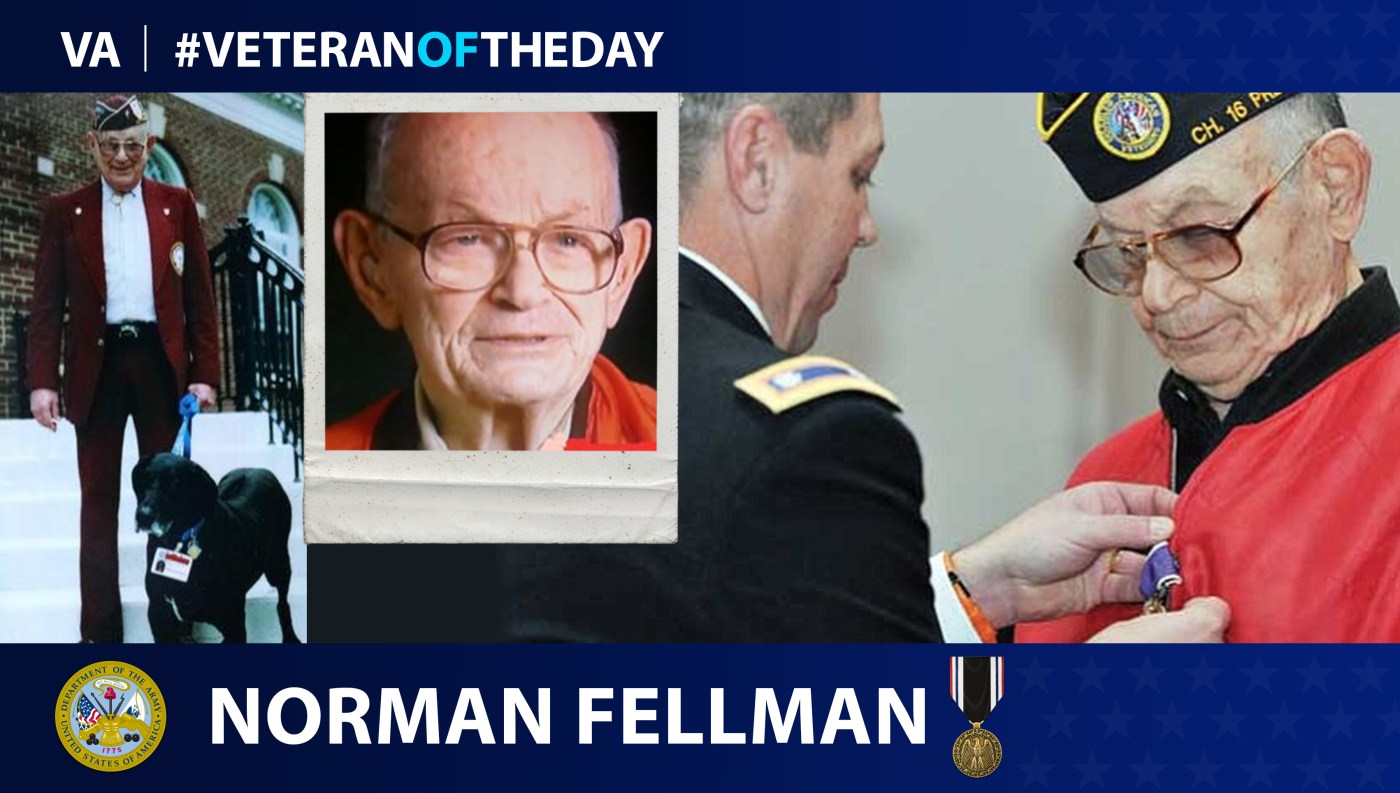
Today’s #VeteranOfTheDay is Army Veteran Norman Fellman, who served as a scout during World War II and was captured as a POW.
The Army drafted Norman Fellman, born in Norfolk, Virginia, in 1944. In his senior year of high school, he transferred to a military school due to his mother’s illness. Upon graduation, Fellman entered the Army.
He was first sent to the medics and went through basic training with them. After finishing his training, Fellman went to an Army air base in Santa Ana, California. Fellman then made his way to a reassignment center in Monterey, California. While there, he became a half-track driver. Fellman went to Camp Adair, Oregon, to join the 70th Infantry Division as a scout.
He went overseas in January 1945, attaching to the 45th Infantry Division in Alsace-Lorraine. Fellman’s company held a hill called Falkenburg Hill, which is outside of Philippsburg, Germany. Things quickly went awry for the company as their captain was wounded, their patrols went missing, they were low on ammunition and they ran out of food. They surrendered to the Nazis, since their only other choices were to freeze or starve.
The Nazis packed the company into railroad cars and took them to Stalag IX-B, which was a prisoner of war camp. The U.S. clerks working in registration registered everyone as a Protestant, in attempt to save the Jews and Catholics. This deceit did not work for long. The Nazis soon ordered Jews to reveal themselves. Fellman, who was Jewish, turned himself in against the advice of the barrack leaders. Fellman did this for two reasons: he was afraid that an anti-Semite would turn him in if they were hungry enough and he was proud of who and what he was. After he turned himself over to the Nazis, he and 351 other Jews and Catholics went off to a labor detachment at Berga an der Elster Camp in Berga, Germany.
This was not a normal prisoner of war camp. This was a civilian concentration camp where there were no rules. Fellman recalled seeing a mass of humanity, men and women, but no children. They received bread that was mostly sawdust, and an identifiable liquid that some called coffee. Fellman and the other 351 men hollowed a mountain for an underground factory. Fellman served in Tunnel 11 and would pick up rocks to take them out of the mountain.
One day in April, the Nazis began to march the prisoners of war around Germany. Fellman later found out that Hitler had given the orders to kill all of the prisoners, but luck was on Fellman’s side. On April 20 the 90th Division liberated the prisoners of war. Fellman, who lost 92 pounds in captivity, went to a hospital in Paris. He then went to Richmond, Virginia, to recuperate from his imprisonment.
After leaving the Army, Fellman went to college. For a long time after the war, Fellman tried to ignore his past in the military and prisoner of war camp, many people who knew him didn’t even know that he was in the military. Fellman’s family managed to convince him 50 years after the war ended to start attending prisoner of war rap sessions. He found that these meetings helped him, and he soon started going weekly.
After retiring, Fellman opened up a boot shop and volunteered at hospitals with his service dog. Fellman passed away in 2014 at the age of 90.
We honor his service.
Find out more about Fellman’s service here.
Nominate a Veteran for #VeteranOfTheDay
Do you want to light up the face of a special Veteran? Have you been wondering how to tell your Veteran they are special to you? VA’s #VeteranOfTheDay social media feature is an opportunity to highlight your Veteran and his/her service.
It’s easy to nominate a Veteran. Visit our blog post about nominating to learn how to create the best submission.
Veterans History Project
This #VeteranOfTheDay profile was created with interviews submitted to the Veterans History Project. The project collects, preserves, and makes accessible the personal accounts of American war Veterans so that future generations may hear directly from Veterans and better understand the realities of war. Find out more at http://www.loc.gov/vets/.
Contributors
Writer: Adrianna Hyland
Editor:
Fact checker:
Graphic artist:
Topics in this story
More Stories
This week’s Honoring Veterans Spotlight honors the service of Marine Corps Veteran Rodney Sickmann, who served in Iran.
This week’s Honoring Veterans Spotlight honors the service of Army Veteran Mary Edwards Walker.
This week’s Honoring Veterans Spotlight honors the service of Marine Corps Veteran Opha May Johnson, who served during World War I.






We honor the service of Norman Fellman.